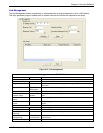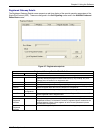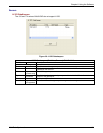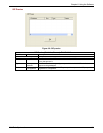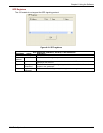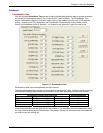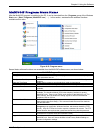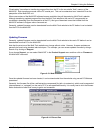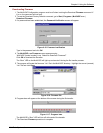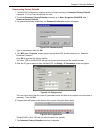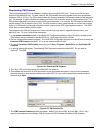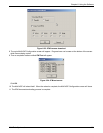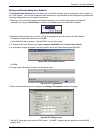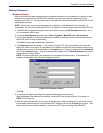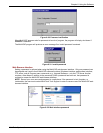
Chapter 6: Using the Software
Multi-Tech Systems, Inc. 118
Implementing a Software Upgrade
MultiVOIP software can be upgraded locally using a single command at the MultiVOIP Windows interface, namely
Upgrade Software. This command downloads firmware (including the H.323 stack), and factory default settings
from the controller PC to the MultiVOIP unit.
When using the MultiVOIP Windows interface, firmware and factory default settings can also be transferred from
controller PC to MultiVOIP piecemeal using separate commands.
When using the MultiVOIP web browser interface to control/configure the VOIP remotely, upgrading of software
must be done on a piecemeal basis using the FTP Server function of the MultiVOIP unit.
When performing a software upgrade (whether from the Windows interface or web browser interface), follow
these steps in order:
1. Identify Current Firmware Version
2. Download Firmware
3. Download Factory Defaults
When upgrading firmware, the software commands “Download Firmware,” and “Download Factory Defaults” must
be implemented in order, else the upgrade is incomplete.
Identifying Current Firmware Version
Before implementing a MultiVOIP firmware upgrade, be sure to verify the firmware version currently
loaded on it. The firmware version appears in the MultiVOIP Program menu. Go to Start | Programs |
MultiVOIP x.xx. The final expression, x.xx, is the firmware version number.
When a new firmware version is installed, the MultiVOIP software can be upgraded in one step using the
Upgrade Software command, or piecemeal using the Download Firmware command and the
Download Factory Defaults command.
Download Firmware transfers the firmware (including the H.323 protocol stack) in the PC’s MultiVOIP
directory into the nonvolatile flash memory of the MultiVOIP.
Download Factory Defaults sets all configuration parameters to the standard default values that are
loaded at the Multi-Tech factory.
Upgrade Software implements both the Download Firmware command and the Download Factory
Defaults command.



